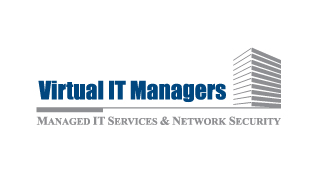Remaining Innovative Is a Key to Business Growth
Whether you are launching a start-up, or several years into operating your business, you need to continue to maintain an innovative mindset that will allow you to creatively fuel business growth. This means exercising your creative thinking skills in order to develop and explore new ideas, opening the doors to new and better opportunities. In order to foster a creative mindset, here are some tips to help you stay on the cutting edge of thought innovation:
Ask Yourself More Questions
When you first started your business, you were likely inclined to thoroughly consider your short and long-term goals, as well as create lists of what steps were needed to accomplish those business growth goals. These steps were an important part of your business plan, and they were important for a reason. Asking yourself tough questions that you were forced to answer honestly help you make the critical business decisions during your business’ start-up. As time goes on, it is just as important that you continue to ask yourself relevant questions about your goals and brainstorm new ideas daily about how to accomplish those goals.
Brainstorming ideas is not just limited to marketing or sales tactics. Consider how to handle physical growth as well as innovative ways to handle current issues that have arisen since the business opened, such as customer service and personnel issues.
Get Reviews
The one clear way to understand how your customers feel about you is to ask them. Getting customer feedback from the people who actually do business with you is invaluable in finding out what is working for them and what is not. For the most objective feedback, develop the ability to conduct regular customer surveys anonymously. Be innovative and use your creative mindset to identify what kind of questions to ask your clientele and customers to get the information you need to improve. And don’t use the same old survey time and again. Update your questions and craft them so that your customers perceive their feedback is important to your business. Not only are your customers’ responses important to your business growth and improvement; you should also continually research what your competition’s customers are saying online about their services and your industry as a whole. This kind of information can be found on blogs and online forums.
Compile and Add to your Network List
Sure, you may have a few business cards you’ve collected that can be helpful to promote your services through other complimentary businesses, but if you are only sticking with those few resources, you are certainly limiting your potential. You should always be networking and adding to your promotional resources to fuel business growth. Do not limit yourself to in-person events, either. Social networking sites are among the fastest growing ways to network these days, and other online resources such as blogs can be effective places to find out what people are looking for and what you might be lacking to provide in your business.
Be consistent in your promotions – don’t sign up for social networking sites and then fail to use them. Plan your messaging ahead of time and implement those services into your daily marketing routine. Creativity comes into play when you develop your keywords, write eye-catching posts that include interesting tidbits to help create a solid social network. Staying on the cutting edge of what’s new and leveraging these opportunities creatively can seriously change the direction of your business. This is also true about simply listening to your customers and taking proactive action based on the information you learn. Educating yourself about what can make your business better is only half the battle. You have to brainstorm ways to be innovative in the ways you make this information work for you to achieve your business growth goals.

 .
.